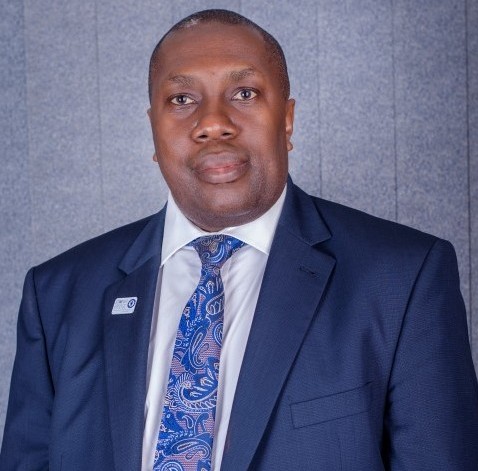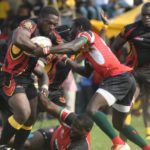Football is one of the most loved and popular sport in Uganda. But over the years, support, passion and emotion has shifted radically from the local clubs to the national team.
The Ugandan football fans are being increasingly put off from supporting their local teams because of lack of investment, poor administration at club level and bad infrastructure.
Big Ugandan traditional clubs like Express and Sport Club (SC) Villa ought to move on from history, bragging about past glory and instead adopt modern football by observing trends in the game including in administration. For example, today’s footballers won’t put in extra energy to get good results unless they have received salary. This is unlike the old days where they would even walk to training.
Express Football Club, referred to by the club fans as the Red Eagles or ‘Mukwano Gw’abangi’, is one of the most successful and supported teams in Ugandan football. It is also the oldest football club in the country, having been founded in October 1957.
However, the current state of affairs at the club doesn’t reflect the tag ‘Mukwano gw’abangi’. For a club that has never been relegated to the second-tier, and one that should be competing for at least a trophy every season, they find themselves in the wrong path; out of the Stanbic Uganda Cup and sit in the relegation zone of the Azam Premier League.
In 2012, Express won the league with Sam Ssimbwa as the manager. Six years later, it is synonymous with mismanagement and chaos of both the club and the fans on and off the pitch.
Things started going downhill when Express appointed State Minister Florence Nakiwala Kiyingi as the club chairperson in 2016 replacing Francis Ntalazi. After a few months, fans demanded for her to be sacked due to lack of knowledge on how to run a football club and numerous administrative conflicts which resulted into team failures in terms of performance.
In February 2018, she was relieved of her duties after failing to live up to her expectations, never mind that she had earlier promised ‘heaven on earth. Hassan Bulwadda is now in charge till the end of the season.
Their shirt sponsor, Dstv is also off their jerseys due to the current state of the club and they have had four managers this season. Matia Lule, Douglas Bamweyana and Shafiq Bisaso all resigned from the club due to administrative hitches.
The Red Eagles has since then recruited George Nsimbe, one of Uganda’s most successful coaches, to try and avoid relegation.
Meanwhile, on Friday last week, they held #TheSaveExpressFCMukwanoGwabangiCampaignFestival at Wankulukuku stadium for all the Reds’ fans in which they collected over 30 million shillings.
Indeed, the situation at club level is not impressive and as if being haunted, SC Victoria University is no more on the scene of Ugandan football due to incompetent management by another politician, Muhammad Nsereko.
At SC Villa Jogoo, Emmanuel Ben Misagga took over as the club’s president at the start of the 2014/15 season.
After some years of administration turmoil for the most successful club in Ugandan football, SC Villa won their 9th Uganda Cup in his first year as the President.
Misagga’s ability to run a football club was questionable at the start because he was an untested person in the position. He has so far sacked six managers since he took over; Steven Bogere, Sam Simbwa, Antonio Flores, Ibrahim Kirya, Deo Sserwadda and Shafiq Bisaso.
But the Jogoos have steadily improved under Misagga and are now chasing the league with rivals Vipers SC and KCCA FC.
After a 14-year title wait, with coach Wasswa Bbbosa, they currently top the table, four points ahead of Vipers, with 9 games left to play. They last won the Premier League title under former Uganda Cranes coach coach Milutin ‘Micho’ Sredojevic in 2004.
SC Villa’s historic home ground, Nakivubo Stadium, was pulled down by city tycoon Hamis Kiggundu, to pave way for its redevelopment, forcing SC Villa to return to its roots in Masaka district. It’s not yet clear if they will return after renovation but most of the club’s fan base is located around Kampala.
Villa’s most successful period domestically remains the years 1998 to 2004 when the record 16-time league champions won seven straight titles.
And now sources say top club enthusiasts and supporters including Edgar Agaba, the Executive Director of the Lotteries and Gaming Regulatory Board (LRGB) want to enhance the popularity and competitiveness of SC Villa, and sources say Mr. Agaba, an SC Villa life member, wants to offer himself for club presidency come the next cycle of elections.
The rise of KCCA FC has been attributed to their good administration, organization and structure. The rebranding of KCC into KCCA in 2015 has saved the club from the same problems facing Express.
They are currently the most valuable team in the country having the most sponsors; Prime Media, StarTimes, MTN and Britam Insurance and earning over a billion shillings from them in a single season.
Being an institutional club, they are financially stable, making them a club that can play on the continent. Most Ugandan clubs usually pull out of the continental competitions (CAF Champions League and CAF Confederations Cup) citing lack of funds.
The ‘Kasasiro Boys’ have a fast growing fan base and made history this year by becoming the first Ugandan club to qualify for the group stages of CAF Champions League.
In the past five years, they have won the Ugandan Premier League four times and the Uganda Cup twice.
The emergence of fast-rising clubs like Onduparaka and Vipers get introduced in Ugandan football. Onduparaka was formed in 2011, reached the Uganda Cup final in 2015 and got promoted to the Uganda Premier League in 2016. They have Betway as the official sponsors with a deal worth UShs 600 million due to a good structure and have the best home support with a big fan base from Arua district.
Founded as Bunamwaya FC in 1969 and renamed Vipers Sports Club on 21 August 2012, the Venoms have reached the Uganda Cup final thrice and won the league once since rebranding.
All credit goes to Vipers’ club patron and president, Lawrence Mulindwa, who has invested a lot in the club climaxing with the recent launching of the St. Mary’s Stadium last year which has a capacity of 20,000.
Through his school St. Mary’s SSS Kitende, Mulindwa nurtures talent that feeds Vipers SC and provides almost half of the players on the national team, the Cranes.







